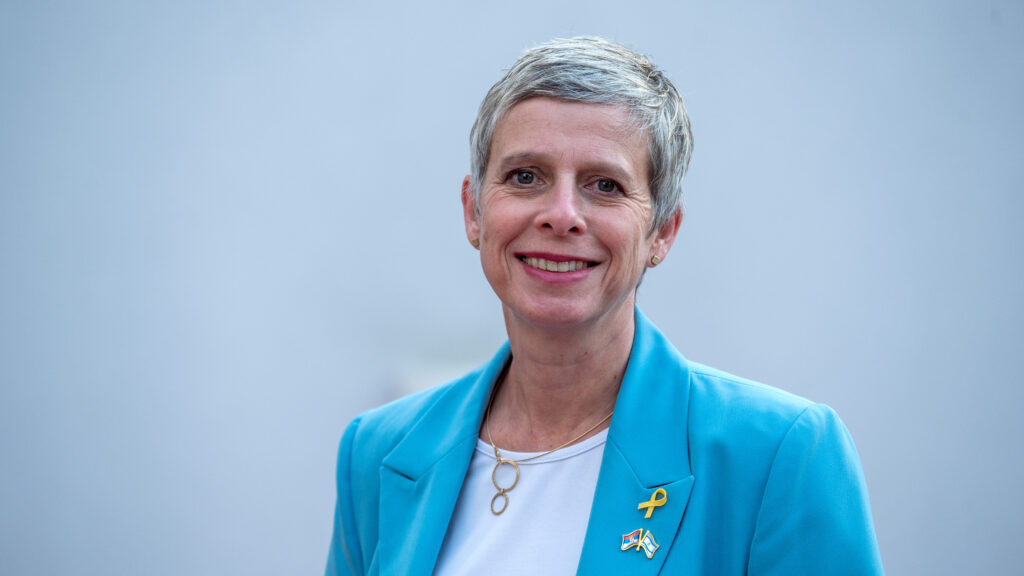Aiming to double trade and enhance cooperation in tech, clean energy, and culture
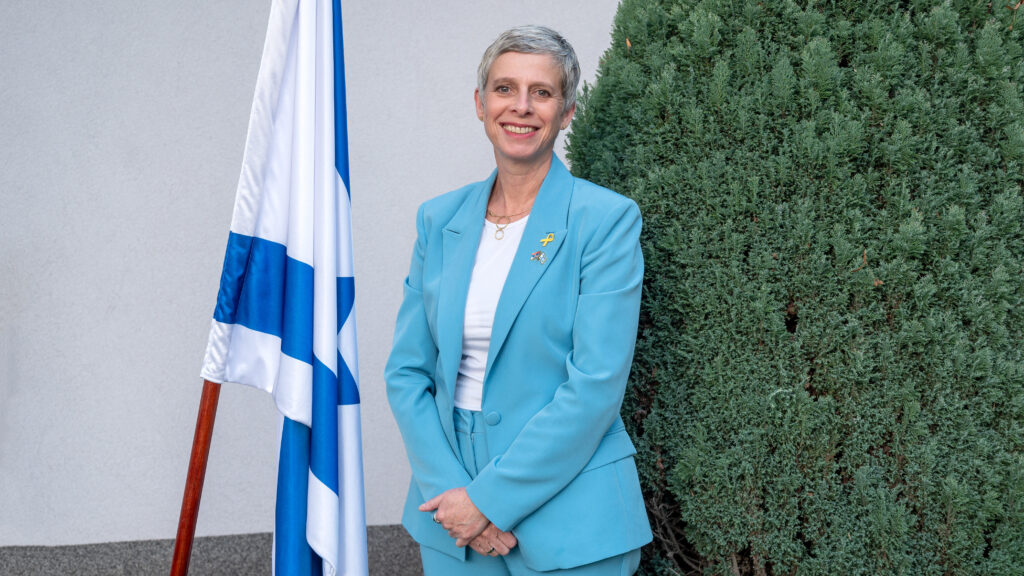 In this exclusive interview, Israel’s newly appointed Ambassador to Serbia, Avivit Bar-Ilan, shares her insights on the growing partnership between Israel and Serbia. With only a few months into her role, Ambassador Bar-Ilan reflects on her experiences in diplomatic and security roles and highlights her vision for strengthening collaboration in key areas like technology, clean energy, and cultural exchange.
In this exclusive interview, Israel’s newly appointed Ambassador to Serbia, Avivit Bar-Ilan, shares her insights on the growing partnership between Israel and Serbia. With only a few months into her role, Ambassador Bar-Ilan reflects on her experiences in diplomatic and security roles and highlights her vision for strengthening collaboration in key areas like technology, clean energy, and cultural exchange.
Before your arrival as Ambassador of Israel to Serbia, you’ve had quite a long career as part of the Ministry of Foreign Affairs of Israel and the National Security Council. How does your earlier work compare to now working as an ambassador?
It has been only three months since I arrived in Belgrade as the new Israeli Ambassador, and I can already say that being an ambassador is a truly unique and multifaceted role and, by far, one of the most exciting positions I have ever had in my career. Being part of the decision-making processes in the Israeli government and participating in many sensitive discussions has given me a deep understanding of the complexities and nuances of foreign policy, security issues, and international diplomacy. However, being a diplomat and representing Israel in a country like Serbia, where we enjoy close and intimate relations, is a new and exciting experience for me. I like being “on the ground, ” meeting government officials in person, turning bilateral agreements and understandings into practical outcomes, and building bridges between our peoples and cultures.
How do you view the current international cooperation between Serbia and Israel? Is it satisfactory, or are there areas for improvement?
The cooperation between Israel and Serbia is truly exceptional, a testament to the long-standing and warm friendship between our peoples for decades. Just one month after I arrived in Belgrade, the President of Israel visited Serbia. His first visit here, at a time when Israel is facing a terrible war, represents a strong symbol of the enduring and close ties between our nations. The two presidents agreed to enhance our bilateral cooperation further, aiming to double our trade volume and initiate negotiations on the Free Trade Agreement.
In the first seven months of this year alone, we have seen a remarkable 20 per cent increase in the number of Israeli tourists visiting Serbia compared to last year. Looking ahead, my ambition is that by the end of my term, we will see a similar rise in the number of Serbian tourists visiting Israel, continuing to build bridges of understanding and friendship between our two countries.
Israel and Serbia’s strong friendship drives efforts to double trade and expand collaboration in tech sectors
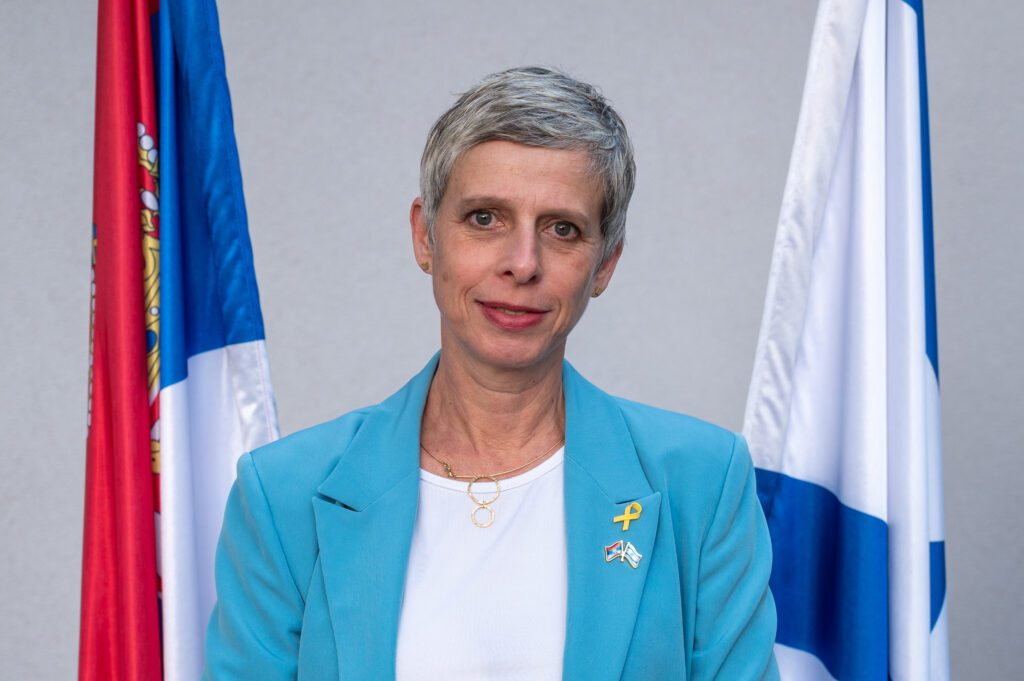 In our last interview with an Israeli Ambassador, H.E. Yahel Vilan, we discussed Israel’s many successful ecological initiatives. What could Serbia learn from Israel in combating ecological issues that persist in many countries worldwide?
In our last interview with an Israeli Ambassador, H.E. Yahel Vilan, we discussed Israel’s many successful ecological initiatives. What could Serbia learn from Israel in combating ecological issues that persist in many countries worldwide?
Israel has faced numerous challenges regarding its natural resources—scarcity of arable land, limited water supplies, and a lack of mineral resources—until the discovery of natural gas in the past decade. These constraints have driven us to innovate, to do more with less, and to develop technologies that maximise the efficiency of our existing resources.
A defining feature of Israeli innovations, such as drip irrigation, water treatment, and agrotechnology solutions, is their simplicity and effectiveness. These technologies are designed to be user-friendly while delivering proven results.
In addition to our leadership in cleantech and waste management, Israel is a world pioneer in wastewater treatment, with 90% of wastewater processed to a level suitable for agricultural use.
We possess the technology, know-how, and experience to address critical environmental challenges and are ready to share these resources with Serbia. As Serbian municipalities and industries work to meet EU standards, our expertise can help to implement Serbia’s green agenda.
The economic department in the Embassy stands ready to connect you with leading Israeli companies in these fields, offering solutions to air pollution, water treatment, the recultivation of waste dumps, and other environmental challenges. We can overcome these obstacles and create a greener, more sustainable future.
It is known that the Israel embassy’s priority sectors regarding the economic partnership between Israel and Serbia are clean tech, hi-tech, the startup ecosystem, and cyber and Biotech. Do you plan on expanding on these priorities during your time here in Serbia, and how do you aim to achieve these goals?
The sectors we have highlighted remain at the heart of our priorities, meaning that our economic activities will continue to focus on these key areas. The embassy is dedicated to fostering collaboration and growth by promoting these industries, facilitating business matching, and organising conferences and events that bring together relevant stakeholders—whether from government, business associations, NGOs, or other partners.
For example, we recently had the honour of hosting a speaker from the alternative proteins sector at the Biotech Future Forum – the Good Food Institute – Israel’s leading think tank in this field. This is one of the many ways we contribute to global conversations around innovation and sustainability.
In November, we proudly participate in the Digital Forensic Forum, an initiative we’ve supported since its inception. The Head of Israel’s National Cyber Center will speak at the event and visit Serbia, underlining the importance of our shared commitment to cybersecurity.
Another exciting event on the horizon is the Wine Vision fair in Belgrade, where boutique Israeli wines will be showcased. I want to extend a warm invitation to both wine professionals and enthusiasts to visit our booth in Hall 4. It will be a wonderful opportunity to explore the rich and diverse flavours of Israeli wines, from the northern regions to the southern ones, all reflecting the unique characteristics of our climate.
Regarding clean technology, we are pleased to see Israeli companies like Enlight Energy and Nofar actively contributing to Serbia’s green energy goals. These companies help reduce the country’s carbon footprint and move toward a more sustainable future. We hope additional Israeli companies will join this effort, furthering our shared commitment to a cleaner, greener world.
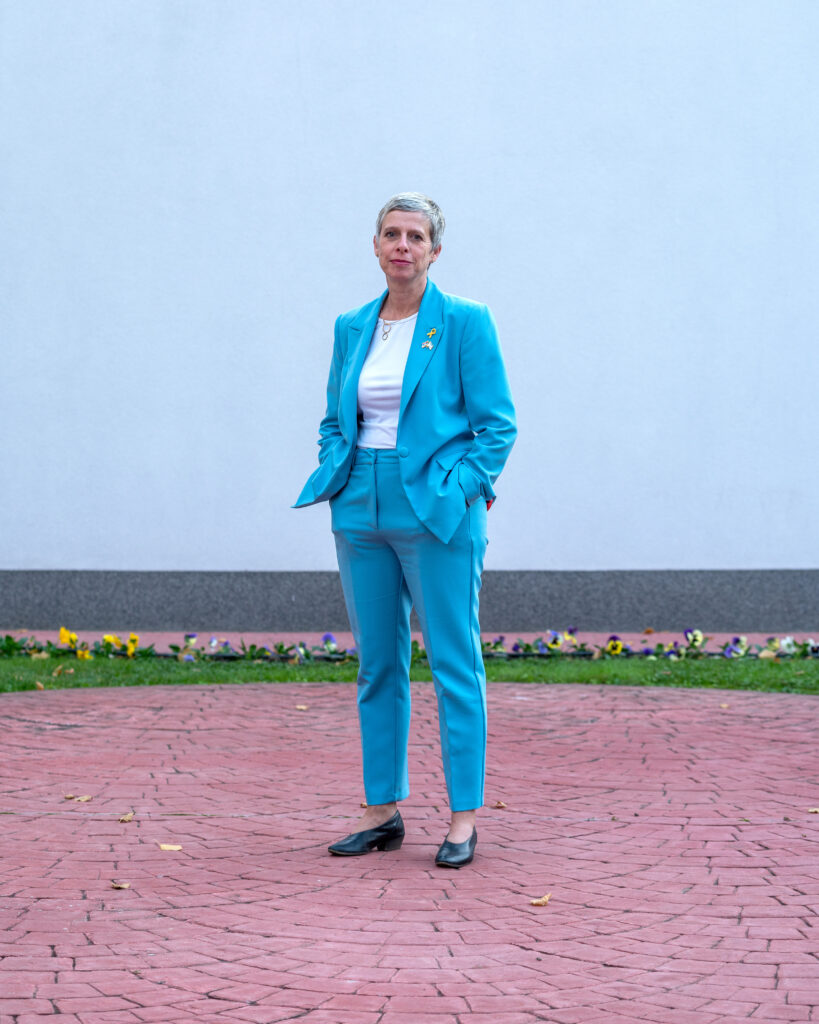 How did Israel become one of the biggest high-tech leaders in the world, and how would you rate Serbia’s current position in high-tech industries?
How did Israel become one of the biggest high-tech leaders in the world, and how would you rate Serbia’s current position in high-tech industries?
I believe that by now, the story of Israel’s transformation into a Startup Nation is well known across Serbia—through the various activities the embassy has organised to share this concept and strategy.
But for those who may still be unfamiliar with this remarkable story, let me offer a summary. Israel’s geopolitical challenges and scarcity of natural resources have long driven the country to innovate and adapt. These unique circumstances compelled Israel to focus on technological advancement, which ultimately paved the way for its remarkable rise as a global leader in innovation and entrepreneurship. This spirit of “thinking outside the box,” resilience, and ingenuity has shaped Israel into a thriving hub of creativity and technological excellence.
As early as 1969, the Israeli government took a forward-thinking step by establishing the Office of the Chief Scientist under the Ministry of Economy and Industry. Its mission was clear: implementing government policies to foster and support industrial research and development projects. In the 1990s, Israel made two critical investments that would propel the country’s high-tech industry into global prominence. The Yozma program, one of these key initiatives, established ten venture capital funds explicitly designed to attract foreign investments. From there, the story of Israel’s technological revolution unfolded, transforming the country into a global powerhouse of innovation and entrepreneurship. The rest, as they say, is history.
Israel has 276 active venture capital funds, reflecting our thriving and dynamic startup ecosystem. As one of the most technologically advanced nations in the world, Israel stands at the forefront of global innovation, with Tel Aviv ranked as the second-largest startup hub worldwide.
In 2022, Israel’s investment in research and development reached an extraordinary 6% of GDP, underscoring the centrality of innovation to our economy. The high-tech sector accounts for 50% of the country’s industrial exports and employs 10% of the national workforce, making technology a cornerstone of Israel’s growth and prosperity.
Our secret is simple: Israel has no choice. We must survive in the desert, we must keep developing and growing, even in the face of war. Despite those who threaten us and question our right to exist, we seek a better future for our children—a better country and world for the next generation. This is why so many of our initiatives focus on building a cleaner, safer, and more accessible future for all.
As ambassador, I aim to deepen ties and support Serbia’s growth through Israeli innovation
Serbia, too, has made remarkable progress in establishing itself as a key tech hub in the heart of Europe. From building vital institutions that form the backbone of its innovation infrastructure to embracing emerging fields like bio-convergence with the ambitious BIO4 Campus project, Serbia is positioning itself as a rising leader in technology and research.
This momentum is reflected in Serbia’s forthcoming role as Chair of the Global Partnership on Artificial Intelligence (GPAI), with the country set to host an important Summit in December. Israel, a proud member of GPAI since 2021, looks forward to continued collaboration with Serbia in this rapidly evolving field.
I recently came across the Startup Genome 2024 report, which ranked Belgrade and Novi Sad as the leading startup ecosystems in the Western Balkans, 10th in Central Eastern Europe, and 48th on the European level. These rankings speak volumes about the continued growth and expansion of Serbia’s tech ecosystem, affirming the country’s growing influence in the region.
As for Israel, the embassy remains unwavering in supporting Serbia’s entrepreneurial and startup ecosystem. We are dedicated to nurturing the relationships we have built over the years, working to strengthen the ties between our two ecosystems and fostering deeper collaboration for the benefit of both nations.
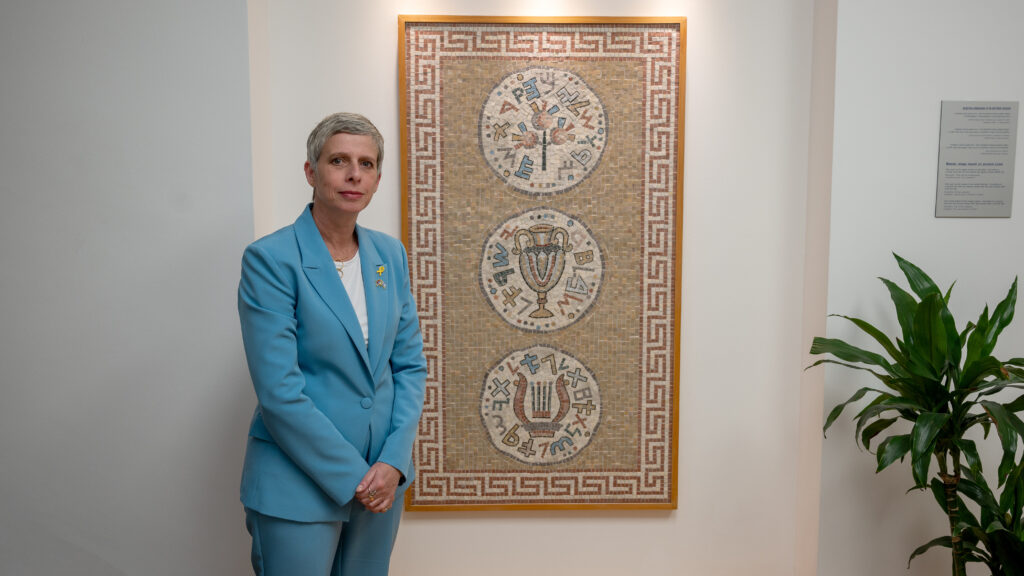 How do you plan to spend your mandate during your time in Belgrade? What activities and programs of the Israel embassy can the people of Serbia expect in the future?
How do you plan to spend your mandate during your time in Belgrade? What activities and programs of the Israel embassy can the people of Serbia expect in the future?
My deepest wish is to immerse myself further in Serbia’s rich culture and traditions and explore the stunning places this magnificent country offers. My connection to Serbia runs deep, as my father was born in Belgrade, and my grandparents are from Pančevo. This heritage fuels my desire to learn Serbian, as I truly wish to communicate with the wonderful people in their language.
I am also enjoying the delightful Serbian cuisine, which I believe is among the best in the world! One of my goals during my time here is to showcase Israel’s diversity and share the beauty of our culture with the Serbian people. The Embassy actively supports and participates in international cultural festivals and events across Serbia, and I look forward to further fostering these connections.
Are there any ongoing education exchange programs between the two countries?
Since 2009, we have been running a program focused on educational, scientific, cultural, youth, and sports cooperation. This program has played a vital role in strengthening ties between Israel and Serbia and is currently being renewed through new agreements.
In addition, Israel’s Agency for International Cooperation and Development, MASHAV, offers a wide array of training courses in various fields, ranging from postharvest technologies to startup accelerators, water treatment, rural development, and trauma and disaster preparedness. The embassy is key in distributing information about these courses to the target audience. Before the COVID-19 pandemic, we welcomed around 50 Serbian professionals to Israel each year to attend these specialised courses.
Israel’s experience in cleantech and waste management offers valuable solutions as Serbia works toward a greener future
MASHAV also offers a grant system that supports alumni in implementing projects on the ground directly related to the topics covered in the courses. We are hopeful that some of these promising proposals will come to fruition and be realised soon, further strengthening the practical impact of our cooperation.
